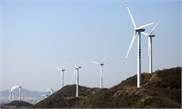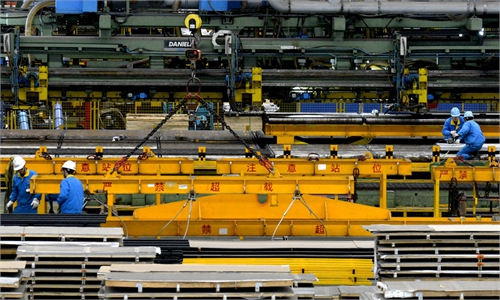China’s emissions trading market undergoes practical tests, looks forward to regional cooperation: major designer

Workers install photovoltaic panels at a reservoir and power station in Hefei, East China's Anhui Province, on March 4. The station aims to be generating electricity by May. Photo: cnsphoto
The national emissions trading system (ETS) has started operations and the supporting data center has been built, one of the major designers involved with building the platform told the Global Times, noting that testing has been initiated with real trading, which has been connected with registration and banking systems.
Many outside the project have great expectations on the national-level ETS which shows China's all-out efforts to meet the 2060 carbon-neutral target. Also, it raises further discussion on the possibilities of connection with the international ETC market.
German Chancellor Angela Merkel previously proposed a global carbon pricing system at the Petersberg Climate Dialogue by videolink in May.
"ETC is one of the major pricing methods," one of the major designers of Shanghai-based carbon emission exchange, Qi Kang, also deputy chief engineer of Shanghai energy conservation emission reduction center, told the Global Times in an exclusive interview.
However, currently, in trial regions, carbon pricing is around 20 yuan ($3.14) and 40 yuan per ton, but it can hit around 50 euros ($61) per ton in the European Union, meaning a huge pricing gap still exists, Qi said.
It's not easy to "establish links with the international carbon trading market" in the short term, but the distribution and pricing mechanisms will be able to connect with the international market gradually, Qi noted.
In East Asian regions, there are already carbon emission trading markets in Japan and South Korea. Meanwhile, some other countries in the region such as the Philippines, Vietnam and Thailand are also building carbon emission trading markets, according to Qi.
With the gradual integration of Asia-pacific economies and the advancement of relevant economic and trade agreements, "as an important factor in the cost of economic operation, it's quite possible to establish a carbon emission market with regional connections," Qi said.
China has proposed its 2060 carbon-neutral target while Japan and South Korea aim to reduce greenhouse gas emissions to net-zero by 2050.
China's environment ministry announced that the long-expected scheme will initiate its first transaction by June this year, with the discharge covered by the nationwide trading market hitting over 4 billion tons, the largest coverage of greenhouse gas emissions globally.
Shanghai Environment and Energy Exchange is responsible for the establishment of the trading system, while China Hubei Emission Exchange in Wuhan, Central China's Hubei Province will be in charge of the registration of applications and data collection.
Qi told the Global Times that the national platform was designed based on the current Shanghai exchange, but the two have different modes.
Shanghai's platform combines settlement and transactions, while the national platform combines settlement with quota registration, Qi said.
Improve structural adjustment
The power industry was included in the system in the first stage because it is the main area of carbon emissions in China, accounting for more than 40 percent, Qi said, noting that power enterprises in piloted regions have accumulated a strong carbon trading and carbon asset management experience.
The seven pilot carbon markets around the nation now cover some 186 power generation companies. The participation of power generation enterprises in the national carbon market will promote enterprises to "carry out structural adjustment" or "energy-saving low-carbon transformation," which will enhance power generation efficiency, Qi noted.
Notably, the push for carbon trading will have a similar effect on other industries that will be included into the system later.
Since 2011, the country has carried out pilot projects on carbon trading in seven regions including Beijing, Tianjin, Shanghai and Hubei Province. Shanghai is the only pilot region across the nation to achieve a 100 percent agreement fulfillment rate in seven years, and also has a solid foundation for the construction of the national carbon market, a Shanghai environment department official told the Global Times in a previous interview.



